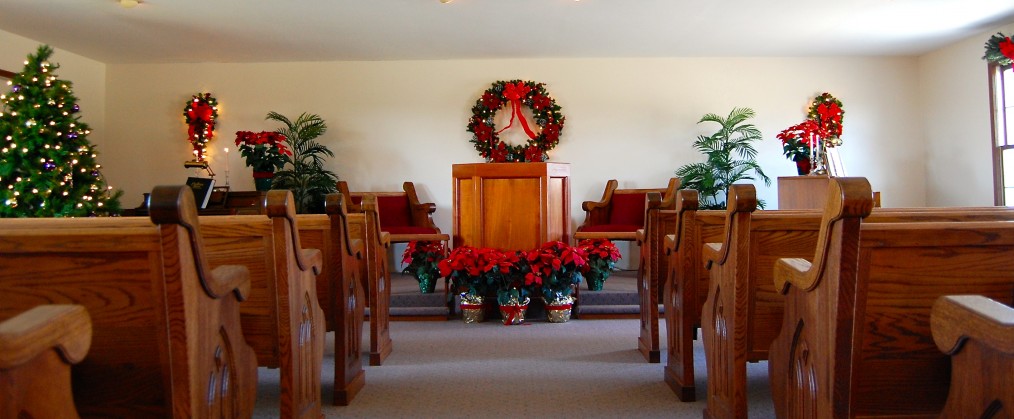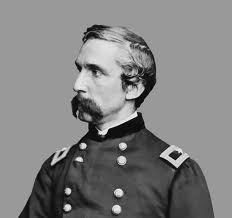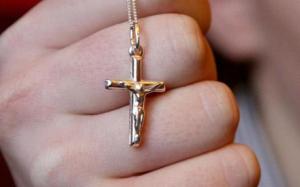In the process of an annual, and mostly futile, effort to clean out file cabinets, I came across remarks I made at the Commencement of Kingswood School in 1995. Some of the illustrations show a little of the nineteen years but, if anything, also show us how pervasive moral relativism is in our culture.
“On a fine October day in 1889 the survivors of the 20th Maine Infantry Regiment gathered once again on the slopes of the rugged nob called Little Round Top, just south of Gettysburg, Pennsylvania. There they dedicated two monuments to mark the place where, a quarter of a century earlier, they had withstood a savage attack, and under the command of a young college professor-turned Army Colonel, spared the Union Army a devastating defeat in the Battle of Gettysburg.
It was the same Joshua Lawrence Chamberlain, hero of the Little Round Top battle, who delivered the dedication address. He spoke of fallen comrades and days of military glory, but his most profound thoughts were metaphysical,
‘We know not of the future, and cannot plan for it much. But we can hold our spirits and our bodies so pure and high, we may cherish such thoughts and such ideals, and dream such dreams of lofty purpose, that we can determine and know what manner of person we will be whenever and wherever the hour strikes, that calls us to noble action.’
Lofty purpose. Noble action. Cherished thoughts. It is of these cherished thoughts I wish to call to your attention this evening. We live in an age termed postmodern. In this age ideals are so different and corrosive that phrases like ” noble action”, and “lofty purpose” are meaningless. As Nietzsche asserted, “There are no facts, but only interpretations.”
It seems absurd that anyone would hold that the only fact we have to work with is that there are no facts. Unfortunately, the truth that something is absurd does not mean that it has no consequences. As Allan Bloom noted in his classic work, “The Closing of the American Mind’
“There is one thing that each freshman brings to his college experience: an Absolute belief that there are no absolutes”
The seeping of this cumulative poison into the larger society will ultimately alter what it means to have “cherished thoughts”.
One of the results of post modern dogma is the compartmentalizing of our lives. Without core beliefs and a common theme of character we segment our lives into “work person”, “play person”, “worship person”. All with separate sets of actions, desires, attitudes, and responses. We behave not so much as who we are, or who we ought to be, but the role the environment dictates to us.
This is not a philosophy that forms a foundation on which to build. It is suitable only for destruction. It is not the norm in the broad sweep of American intellectual and cultural history. Had moral relativism been in vogue in the eighteenth century the words, ‘We hold these truths to be self-evident’, would have seemed ludicrous. The indignity of slavery would not have been dealt with in the nineteenth century, for without a sense of justice and morality, “might makes right”. And the crucible of the twentieth century would have ended far differently if moral appeasement had won the day. Moral relativism has not guided us in the great moments of our past, and it should not be the guide for our future.
On the banks of the Jordan River three thousand years ago, a homecoming of sorts was about to take place. I say, “of sorts’, for the people about to possess the new land had never actually seen it. But they knew of it. For forty years the previous generation had lived in the arid wasteland of the Sinai because of a missed opportunity. God simple postponed homecoming.
This homecoming generation was not allowed the possession simply because they were young and idealistic, or had high self-esteem, but because of their submission to God’s will. They answered Joshua’s challenge, ‘All you have commanded us, that we will do.’ They had seen the deadly consequences of disobedience.
For forty years our generation has been led through the arid wasteland of Godless, unprincipled ethics. If we are to be part of the homecoming generation, then we must not only know from whence we have come, but affirm with God’s people, ‘All that you have commanded us, that will we do.”





